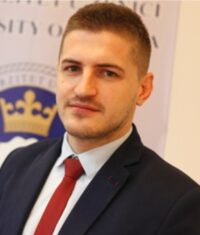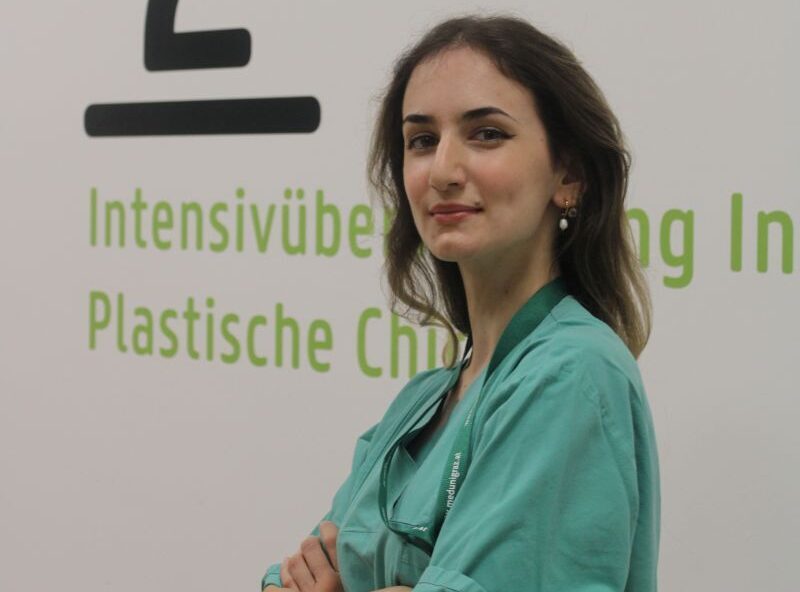Alem Merdić, PhD in Economics and alumnus of the Hastor Foundation, is a professor at the Faculty of Economics in Zenica. In addition to his academic work, he is actively involved in projects related to the economy, collaborations with the local community, financial expertise and evaluations. These activities stem from Alem’s strong desire to contribute to societal development. Economics and the study of economics were at the center of our conversation with Alem.
- How does university curricula align with the actual needs of the labor market?
A continuous challenge for educational institutions is aligning curricula with labor market needs. Currently, the Faculty of Economics in Zenica (as well as other faculties in the Federation of Bosnia and Herzegovina where I am involved) has a curriculum that is fairly well aligned with real labor market demands. This is not just a subjective impression—the fact that graduates quickly adapt to organizational processes, and often the best among them take on leadership roles, speaks for itself. There is certainly room for improvement: the adjustment period after graduation could be shortened and made more cost-effective. However, as I have already mentioned, this requires more proactive involvement, especially from educational institutions, the government, and the business sector, with the aim of incorporating key practical areas directly into the curriculum. Ideally, the final year of study should be organized as a dual program—part at the faculty and part within a company. Public faculties of economics in the Federation of Bosnia and Herzegovina are trying to achieve this through economic-business councils involving industry representatives, but I believe there is still room for more active collaboration.
- How do students handle quantitative subjects, and how can they be supported in overcoming these challenges?
When it comes to subjects requiring more quantitative analysis, there are generally two groups of students: those more inclined toward quantitative topics, and those who prefer reading and learning content without a lot of calculations. Economics demands both quantitative and qualitative knowledge, and both are necessary to master. Ultimately, disciplined, dedicated, and hard-working students are able to overcome both types of challenges during their studies. In my opinion, difficulties with quantitative subjects mostly stem from gaps in earlier education—either elementary or high school. The only way to help students is to identify these gaps, address them, and build the necessary foundation in order to perform more complex quantitative analyses later.

- How would you assess the quality of practical instruction and research projects (e.g. analysis of foreign investments), considering your experience with mentorship and project work?
At universities, the level of practical instruction is currently minimal, which can and should be improved in the future. Still, I believe it is crucial to emphasize the importance of theoretical education, which tends to be undervalued in our society. Theoretical knowledge is a prerequisite for effective practice. I often give students practical tasks—such as analyzing a company’s declining revenue—but already in the first year, most of them cannot clearly define the theoretical concept of revenue. This shows how essential theory is. At the same time, theory without practical application is meaningless. So while practical training is currently underdeveloped at faculties, the situation is different when it comes to projects. Success in this area largely depends on the students’ motivation and willingness to engage. With our partner companies in Bosnia and Herzegovina, we implement high-quality practical projects and involve students who are eager to participate and grow. These students quickly find employment and achieve impressive results in practice.
- What is your advice for future economics students?
The period of studying is definitely one of the most beautiful phases of life. In life, academics, and work, there are universal values—kindness, discipline, diligence, dedication, and responsibility—which always produce results when applied. Take advantage of student exchange opportunities, connect with your peers, and be good people. And yes—have fun! Studying is a beautiful journey that significantly shapes the rest of our lives.




